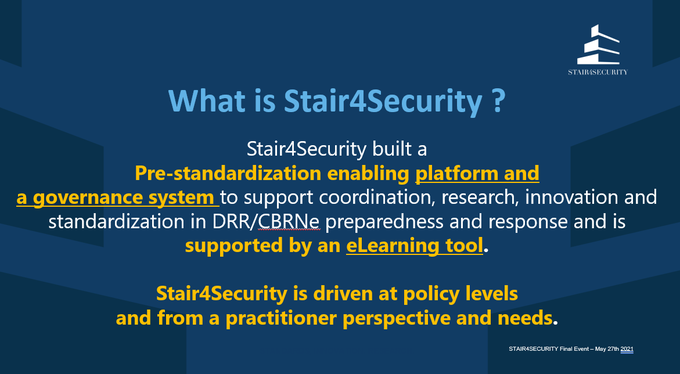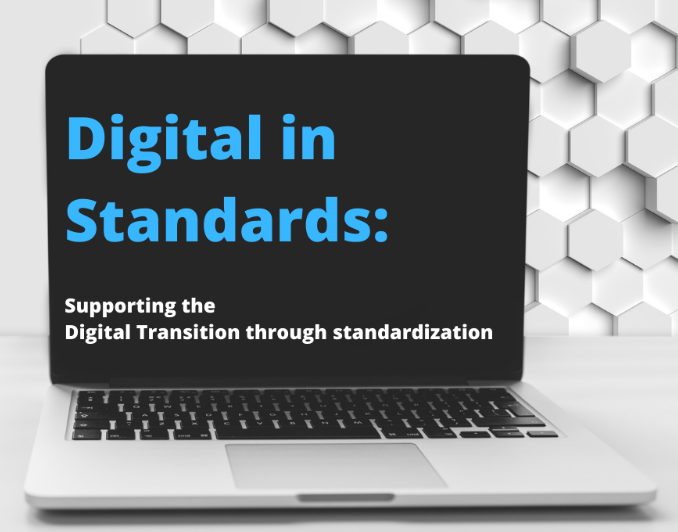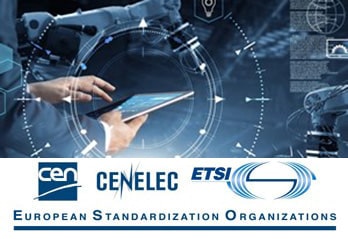The European Commission kick-starts two new Industrial Alliances: The Alliance for Processors and Semiconductor technologies, and the European Alliance for Industrial Data, Edge, and Cloud. The two new alliances will advance the next generation of microchips and industrial cloud/edge computing technologies and provide the EU with the capabilities needed to strengthen its critical digital infrastructures, products, and services. The alliances will bring together businesses, academia, users, as well as research and technology organisations.
Industrial Alliance for Processors and Semiconductor technologies: The Industrial Alliance on processors and semiconductor technologies will be a key instrument to further industrial progress in the EU in this area. It will identify and address current bottlenecks, needs and dependencies across the industry. It will define technological roadmaps ensuring that Europe has the capacity to design and produce the most advanced chips while reducing its overall strategic dependencies by increasing its share of the global production of semiconductors to 20% by 2030.
European Commission Proposes a Common Charger for Electronic Devices
The Commission takes an important step against e-waste and consumer inconvenience, caused by the prevalence of different, incompatible chargers for electronic devices. Years of working with industry on a voluntary approach already brought down the number of mobile phone chargers from 30 to 3 within the last decade but could not deliver a complete solution. The Commission is now putting forward legislation to establish a common charging solution for all relevant devices.
With proposal for a revised Radio Equipment Directive, the charging port and fast charging technology will be harmonised: USB-C will become the standard port for all smartphones, tablets, cameras, headphones, portable speakers, and handheld videogame consoles. In addition, the Commission proposes to unbundle the sale of chargers from the sale of electronic devices. This will improve consumers' convenience and reduce the environmental footprint associated with the production and disposal of chargers, thereby supporting the green and digital transitions.
Stair4Security (Standards, Innovation and Research for Security) Project: Conclusions and Results
STAIR4SECURITY (Standards, Innovation and Research for Security) is a project funded by the European Union’s Horizon 2020 research and innovation programme. The project has been coordinated by CEN with the involvement of four National Standardization Bodies (AFNOR, ASI, DIN and SIS), together with the Chairperson of CEN/TC 391 'Societal and Citizen Security', TFC Research and Innovation Limited, National University of Ireland Galway, and KPMG Future Analytics. The project started in January 2019 and ended in June 2021.
The project developed a digital platform for better coordination of research-related standardization activities in the security sector, and to meet the growing needs of operators in the fields of Chemical-Biological-Radiological-Nuclear and small- sized quantity Explosives (CBRNe) and Disaster Resilience/Disaster Risk Reduction (DRR). The platform builds on a legacy of identified projects and provides a “single entry point” for any query related to pre-standardization and standardization in the CBRNe/DRR sectors.
The insurance business is rapidly migrating from paper-based processes to the digitalization and automation of electronic processes. These electronic business processes take place between independent organizations, which leads to a variety of information formats being used. To facilitate this information exchange, there is a need for the standardization of the data formats being used.
The European standards developed by CEN/TC 445 ‘Digital information Interchange in the Insurance Industry’ are focused on the information exchange between insurance companies and their customers and market partners, e.g., brokers, portals, service providers, and other insurers. In November 2020, CEN/TC 445 published the European standard EN 17419-1:2020, which specifies the transfer of electronic documents.
As a follow-up to this Standard, CEN/TC 445 recently published CEN/TR 17419-2:2021 'Implementation Specification for EN 17419-1'. This European technical report describes a concrete specification for an implementation of the EN 17419-1 in a microservice architecture, using REST/JSON based on the Open API 3.0 specification. In addition, it contains a complete API definition for the services implementing the transfer of documents.
DIN, DKE & VDI developing the German Standardization Roadmap for Circular Economy
Together with the German Federal Ministry for the Environment, Nature Conservation and Nuclear Safety (BMU), the German Institute for Standardization (DIN) and the German Commission for Electrical, Electronic & Information Technologies (DKE) of DIN and VDE and the Association of German Engineers (VDI) have announced the launch of the German Standardization Roadmap Circular Economy. The aim of the Standardization Roadmap is to provide an overview of the status quo of standardization in the field of Circular Economy, describe the requirements and challenges for seven key topics, and identify possible concrete needs for action for future standards and specifications.
-
Essential support for climate targets: The Circular Economy is of particular importance in achieving the goals of the Green Deal and the Climate Change Act 2021. To achieve the ambitious climate protection targets, new and revised technical rules for the Circular Economy are now needed. The Standardization Roadmap Circular Economy will set the path for this, thus driving forward the green transformation of Germany and Europe.
-
Seven key topics set: The Roadmap will focus on the following key topics: Electrotechnology and ICT, batteries, packaging, plastics, textiles, construction & municipalities, and digitalization/business models/management. These are based on the key topics of the EU's Circular Economy Action Plan. With a German Standardization Roadmap for Circular Economy, specific national standardisation needs will be identified with the aim of feeding them into the European and international standardisation bodies.
The Digital Transition is an opportunity for Europe to boost its competitiveness in global markets. European Standards play a key role in this ambition, seeing as they:
-
promote security and safety for products and services
-
build trust in emerging technologies
-
work to find consensus and enable state of the art solutions for Europe
This brochure is meant to highlight not just what exists for the future of standardization in the digital transition, but to look at the new and exciting fields that standardization plans to explore.
The event is dedicated to discussing a study DIGITALEUROPE carried out on the future of cybersecurity for the Internet of Things (IoT). The study takes place in a context of enhanced attention to ensuring the security of IoT devices and makes proposals for decision-makers: the European Commission has put forward several policy proposals to introduce cybersecurity requirements on connected devices. Furthermore, the IoT, in both its consumer and industrial aspects, is also expected to be one of the future areas for cybersecurity certification pursuant to the Cybersecurity Act.
After the presentation of the results, CEN and CENELEC’s work on cybersecurity was presented during an interactive discussion with other high-level speakers, representing the European Commission, civil society organisations, national authorities, the industry and other European Standards Organisations. More information on the panel and on how to subscribe are available on DIGITALEUROPE’s website.
Industrial data has become one of the top strategic priorities for European and international industry in the recent years. Well managed and duly exploited, industrial data bring a significant competitive edge to businesses and can greatly improve overall efficiency, be it by supporting core processes or by providing a new source of insights.
In this data-driven era, industrial data play an essential role in building the foundation of the next wave of digitization in Europe. For this reason, it is key to the success of a harmonised Single Market and European competitiveness in the global market, but also for the success of the twin transition (green and digital) at the heart of the EU policy agenda.
Industrial data is of ever-increasing importance for companies in Europe and the world, and particularly so in the context of the digitization of industry. On this topic, on 28 Sept, CEN, CENELEC and ETSI co-organised an online stakeholders’ workshop dedicated to exploring how standards can support the industrial data value chain.
ETSI Releases two Technical Reports to Support US NIST Standards for Post-Quantum Cryptography
In 2016 the US National Institute of Standards and Technology (NIST) announced their intention to develop new standards for post-quantum cryptography. They subsequently initiated a competition-like standardization process with a call for proposals for quantum-safe digital signatures, public-key encryption schemes, and key encapsulation mechanisms. NIST have stated that they intend to select quantum-safe schemes for standardization at the end of the current, third round of evaluation. The ETSI CYBER Quantum Safe Cryptography committee is pleased to announce the publication of two Technical Reports that give descriptions of each of the candidate schemes in the third round of the NIST standardization process:
-
ETSI TR 103 616 V1.1.1 (2021-09) "Quantum-Safe Signatures"
-
ETSI TR 103 823 V1.1.1 (2021-09) "Quantum-Safe Public Key Encryption and Key Encapsulation"
The descriptions contained in the reports are not intended to be used as substitutes for the detailed specifications submitted to the NIST process. Instead, the emphasis is on providing unified, concise descriptions of each of the schemes, using consistent notation and terminology, to facilitate understanding and easy comparison.














